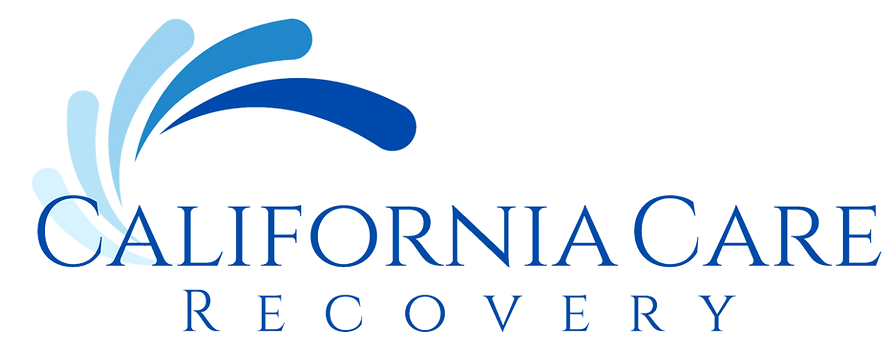Detox Centers Near Me
Understanding Detox and Its Role in Addiction Recovery
Detox is the first step in a complete treatment plan for substance use disorder. It acts as a transition from active addiction to recovery. During detox, your body gets rid of harmful substances while medical professionals keep an eye on you and manage any withdrawal symptoms you may experience.
The Importance of Medically Supervised Detox
Medically supervised detox is crucial because it offers safety measures that self-directed withdrawal cannot provide. Here’s what medical professionals can do during this process:
- Monitor your vital signs and neurological responses
- Administer medications to lessen the severity of withdrawal symptoms
- Take immediate action if any complications arise
- Provide emotional support around the clock during difficult moments
The significance of having professional supervision cannot be emphasized enough. Withdrawal from certain substances, especially alcohol and benzodiazepines, can lead to seizures, heart problems, or severe dehydration if not treated properly. If you or someone you know is seeking help for alcohol or drug addiction, California Care Recovery offers expert detox and mental health treatment in Orange County. They have medical staff available 24/7 and can admit patients on the same day.
How Detox Sets the Stage for Recovery
Successful detox lays the groundwork for all future recovery efforts. When your mind and body are free from drugs or alcohol, you can fully participate in therapy, learn coping skills, and address any underlying mental health issues through dual diagnosis treatment.
This newfound clarity becomes essential for:
- Processing trauma
- Developing healthy communication skills
- Building emotional resilience necessary for long-term sobriety
Duration of Detox
The detox phase usually lasts between 3 to 10 days, depending on various factors such as the substances being used and individual circumstances.
Support for Heroin Addiction
For those struggling with heroin addiction, California Care Recovery in Mission Viejo offers comprehensive rehabilitation services that include both detoxification and inpatient programs.
Support for Drug and Alcohol Detoxification
Their drug and alcohol detox services in Mission Viejo also provide assistance for safe and effective recovery from substance abuse.
Compassionate Treatment for Alcohol Abuse
If alcohol is the primary concern, the alcohol rehab program at California Care Recovery in Mission Viejo offers compassionate treatment aimed at achieving lasting recovery from alcohol addiction.

1. Patient Brokering and Insurance Fraud
Patient brokering represents one of the most concerning unethical rehab practices plaguing the addiction treatment industry. This illegal practice involves individuals or organizations receiving kickbacks for referring patients to specific treatment facilities, often without regard for the patient’s actual needs or the quality of care provided. These brokers typically target vulnerable individuals in early recovery, exploiting their desperation for help.
Insurance fraud in rehab occurs when treatment centers deliberately manipulate billing practices to maximize insurance payouts. Facilities may bill for services never provided, extend treatment unnecessarily, or use patients’ insurance information for unauthorized procedures. Some centers even recruit patients specifically for their high-value insurance policies rather than their genuine need for treatment.
Warning Signs of Fraudulent Practices
- Aggressive marketing tactics through social media or recovery communities
- Offers of free sober living arrangements in exchange for attending their program
- Pressure to sign documents immediately without time to review
- Reluctance to discuss specific treatment methods or staff credentials
- Multiple facility transfers without clear medical justification
- Billing discrepancies or unexpected charges appearing on insurance statements
These predatory practices not only drain insurance resources but can severely compromise patient outcomes. Individuals may receive inadequate care, experience multiple relapses, or develop distrust toward legitimate treatment providers. The financial exploitation often leaves families devastated while patients remain trapped in cycles of ineffective treatment.
2. Vague or Misleading Information from Detox Centers
Vague rehab information and misleading detox ads create significant barriers to finding quality care when you need it most. Facilities that provide generic descriptions like “comprehensive treatment” or “holistic approach” without specific details about their methods often lack the expertise they claim to possess. These ambiguous statements prevent you from making informed decisions about your recovery journey.
Legitimate detox centers demonstrate transparency through detailed information about their clinical staff’s credentials, specific treatment modalities, and current facility accreditations. They openly share their medical director’s qualifications, nursing staff certifications, and evidence-based protocols used during the detox process. This transparency reflects confidence in their services and commitment to patient safety.
3 Red Flags to Watch For When Choosing a Detox
- Missing Staff Credentials: No information about medical professionals’ qualifications or licensing
- Generic Treatment Descriptions: Vague language without specific therapeutic approaches or protocols
- Absent Accreditation Details: No mention of state licensing, Joint Commission certification, or other regulatory approvals
Verifying rehab credentials requires active research beyond facility websites. Contact your state’s health department to confirm licensing status, check with accreditation bodies like The Joint Commission, and request to speak directly with clinical staff about their qualifications. Reputable facilities welcome these inquiries and provide documentation readily. Trust your instincts when information feels incomplete or staff seem evasive about their credentials and treatment approaches.
Additionally, it’s important to ensure that your insurance coverage is compatible with the detox center you choose. Some facilities may assist in verifying your insurance coverage for treatment options and services, which can be a significant factor in your recovery process. For instance, California Care Detox & Treatment offers help in verifying insurance coverage among other services.
3. Offers to Pay for Travel or Insurance Expenses
When researching travel offers for rehab, be extremely cautious of facilities that promise to cover your transportation costs or handle your insurance payments upfront. These seemingly generous offers often serve as red flags indicating potential insurance payment scams rather than genuine care for your recovery.
Unscrupulous facilities use these financial incentives to lure vulnerable individuals into their programs, prioritizing profit over patient welfare. They may offer to:
- Pay for flights, hotels, or ground transportation to their facility
- Cover insurance deductibles or copayments before treatment begins
- Guarantee full insurance coverage without proper verification
- Provide cash incentives for choosing their program
These tactics violate legitimate rehab practices and often indicate facilities engaged in insurance fraud or patient brokering schemes. Authentic treatment centers focus their resources on providing quality care rather than elaborate marketing incentives.
“Reputable facilities invest in qualified staff, evidence-based treatments, and proper accreditation—not expensive travel packages for prospective patients.”
Legitimate detox centers may assist with insurance verification and provide information about local accommodations, but they won’t offer to pay these expenses as enrollment incentives. Such offers typically mask underlying issues with treatment quality, staff qualifications, or business practices that should raise serious concerns about the facility’s true intentions and commitment to your recovery journey.
Additional Factors to Consider When Choosing a Detox Center Near You
Beyond avoiding red flags, selecting the right detox facility requires careful evaluation of several critical components that directly impact recovery success.
1. Structured Treatment Plans
Structured Treatment Plans form the backbone of effective addiction treatment. Reputable facilities develop individualized approaches that address each person’s unique medical history, substance use patterns, and co-occurring mental health conditions. These personalized plans should include specific timelines, measurable goals, and regular progress assessments rather than generic, one-size-fits-all protocols.
2. Evidence-Based Care
Evidence-Based Care represents another non-negotiable standard. Quality detox centers utilize treatment modalities backed by scientific research, such as:
- Medication-assisted treatment (MAT) for opioid and alcohol dependence
- Cognitive-behavioral therapy techniques during stabilization
- Trauma-informed care approaches
- Dual diagnosis treatment for concurrent mental health disorders
The facility’s clinical staff should possess proper credentials and ongoing training in these evidence-based methodologies.
3. Safe Rehab Environment
A Safe Rehab Environment encompasses both physical safety and emotional security. This includes 24/7 medical supervision, secure facilities, proper medication management protocols, and a therapeutic milieu that promotes healing. The environment should feel supportive rather than institutional, with adequate privacy, comfortable accommodations, and policies that protect patient dignity.
4. Accreditation
Accreditation from organizations like The Joint Commission or CARF demonstrates adherence to industry standards and regulatory compliance, providing additional assurance of quality care.
Why Prompt Yet Careful Selection Matters for Successful Recovery
Timely addiction treatment can be life-saving, particularly when severe withdrawal symptoms or medical complications threaten your health and safety. The urgency to begin recovery should never be underestimated—addiction progresses rapidly, and delaying treatment often leads to worsening physical and mental health consequences.
However, the pressure to act quickly shouldn’t compromise your ability to make an informed decision. Selecting a trusted rehab center requires balancing immediate needs with careful evaluation. Taking time to verify credentials, research treatment approaches, and confirm insurance coverage protects you from predatory facilities that exploit vulnerable individuals.
Remember the 3 Red Flags to Watch For When Choosing a Detox:
- Patient brokering schemes and insurance fraud
- Vague or misleading facility information
- Offers to pay travel or insurance expenses
Quality detox centers understand the urgency of addiction treatment while maintaining transparent, ethical practices. They provide immediate support without pressuring you into hasty decisions that could jeopardize your recovery journey. Your health deserves both prompt attention and careful consideration.
